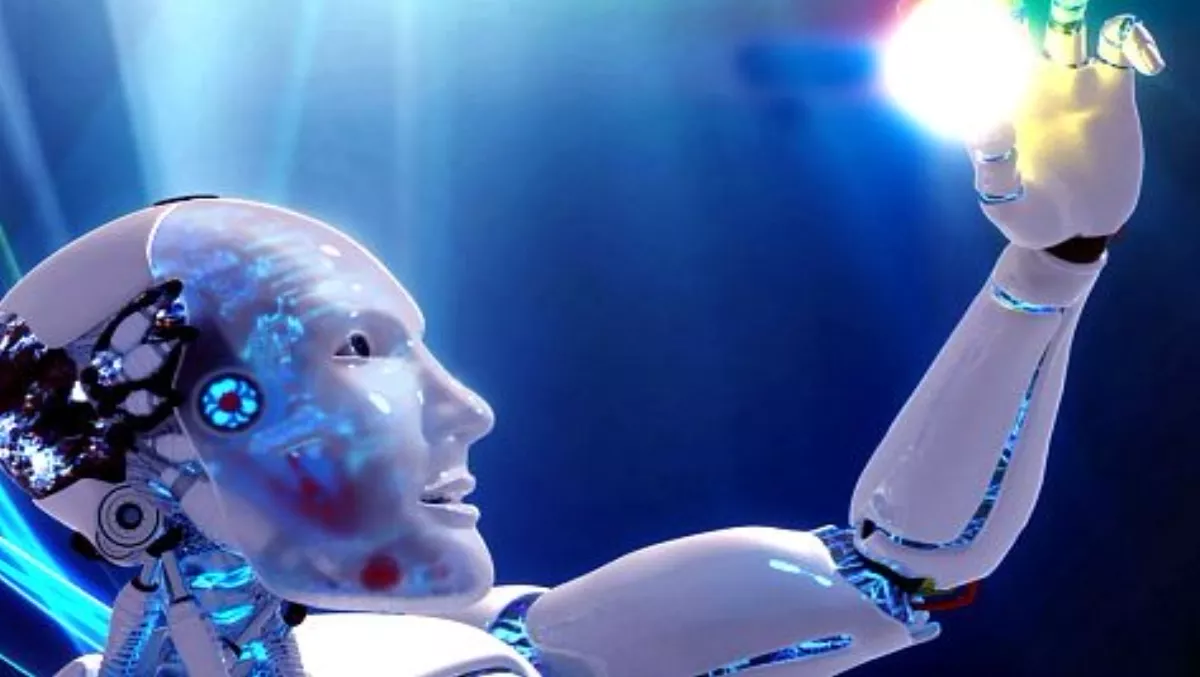
Artificial Intelligence is on the horizon – are you ready?
It's safe to say Artificial Intelligence (AI) will significantly change how businesses operate and how people interact with them – and the reality of AI may be closer than you think.
Some experts predict in as little as a decade, technology will reach a point when machines are capable of independent thought, a concept known as the singularity.
What could be the reality for New Zealand businesses when this happens?
Will robot supervisors take care of performance reviews? Will small businesses get wiped out when cheaper, faster, automated versions of what they offer springs up? Will businesses have to choose between a courier company or a drone firm?
Taking a closer look at these questions, MYOB has released the second report in its Future of Business series: 'Surviving the Singularity'.
This report has been designed to help business owners, students and developers start to plan for what has, until recently, been the preserve of science fiction.
Simon Raik-Allen, MYOB chief technology officer, says as leading AI experts, scientists and theorists around the world are highlighting the dangers of uncontrolled technological development, it is important for people to think about how technology may change their future.
"Recently Professor Stephen Hawking, Elon Musk, Bill Gates and Steve Wozniak, have all issued stark warnings about where technology might lead in the future – especially with the rise of autonomous, weaponised drones and robots.
"But regardless of how the technology is applied, the point at we give machines the capacity to learn and create on their own, will be the moment we are no longer the dominant species on the planet," says Raik-Allen.
"While it's fun, or even scary, to think about what that might be like, the changes we might see are likely to be closer than everyone expects.
"While the world probably won't end up going the way of the Terminator series, if you are in business, developing your career or even thinking about what job you might have in the future, it makes sense to start planning now for the highly automated world that is quickly evolving.
Raik-Allen says while there is growing recognition of the risks of AI, people still want to harness the benefits of advanced technology – especially in business. And that means having a good idea of what a world at the 'singularity safety limit' will look like.
The human factor will win out
"Regardless of how advanced the technology, one thing that is unlikely to change is our desire for human experience," says Raik-Allen.
"That's where people are always going to have the advantage over robots. As the world evolves, in everything from your retail experience to making a business deal, the complex interactions we have with people are likely to become, if anything, more valuable.
"Take, for example, buying music. There's nothing more convenient than today's digital download, but how many music lovers miss the experience of going into the record shop to talk to the assistant about the latest release from their favourite band? That sort of experience is only going to become more sought-after," he says.
The workplace will fundamentally change
With the rise of automation, the world of work is going to change fundamentally over the next two decades, says Raik-Allen.
"While we are probably not all going to be reporting to a robot, the reality is that a lot of jobs that exist today will be replaced by automation, while roles we've not yet thought of will open up.
"If you are starting a business or a student thinking about your career, that makes it important to plan now," he says.
"Again, it is likely to be the 'human factor' that will make all the difference. While technology provides us with high efficiency and accuracy, some skills are fundamentally difficult to automate.
"We still have an advantage over robots for the tasks that require judgment, creative thinking and human interaction," Raik-Allen says.
"With more time on our hands, other business opportunities are likely to flourish, in the arts, culture, sports and caring professions.
"Whatever the future brings (and I'm hoping for a technological utopia) it really is just around the corner, so businesspeople, entrepreneurs and students should start preparing for it now," he says.
Three things a small business owner can to do to prepare for the age of AI, according to MYOB
1. Digitise your business. Get online with a business website, and automate as many manual processes as you can.
2. Focus on the customer experience that your product or service delivers. In the age of robotics, human contact will likely become more valuable.
3. Broaden your business network. Create relationships and partnerships that will enable you to connect more strongly with people.


